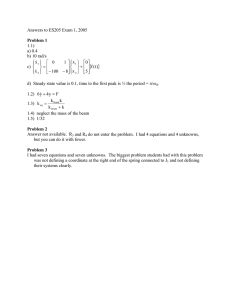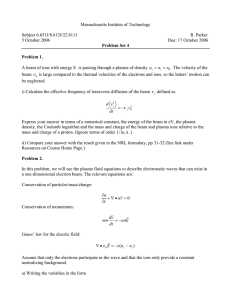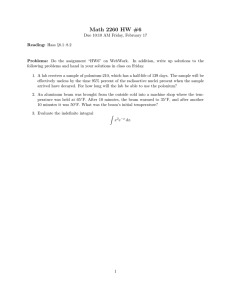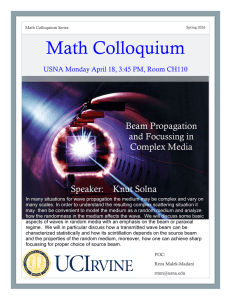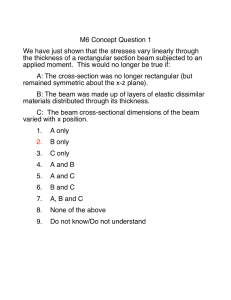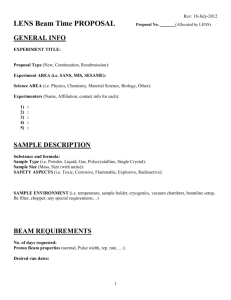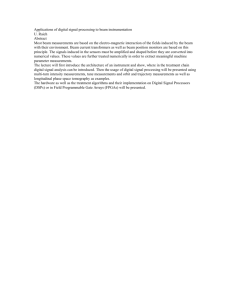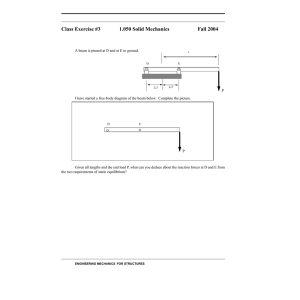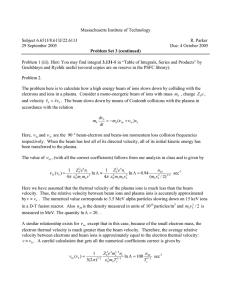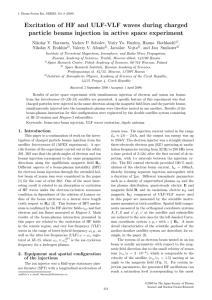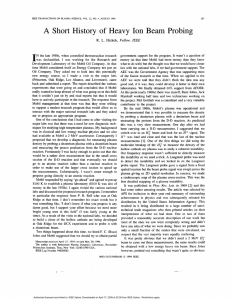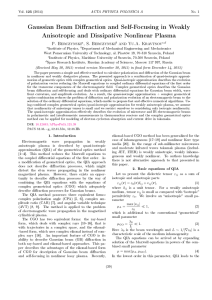Massachusetts Institute of Technology Subject 6.651J/8.613J/22.611J R. Parker
advertisement
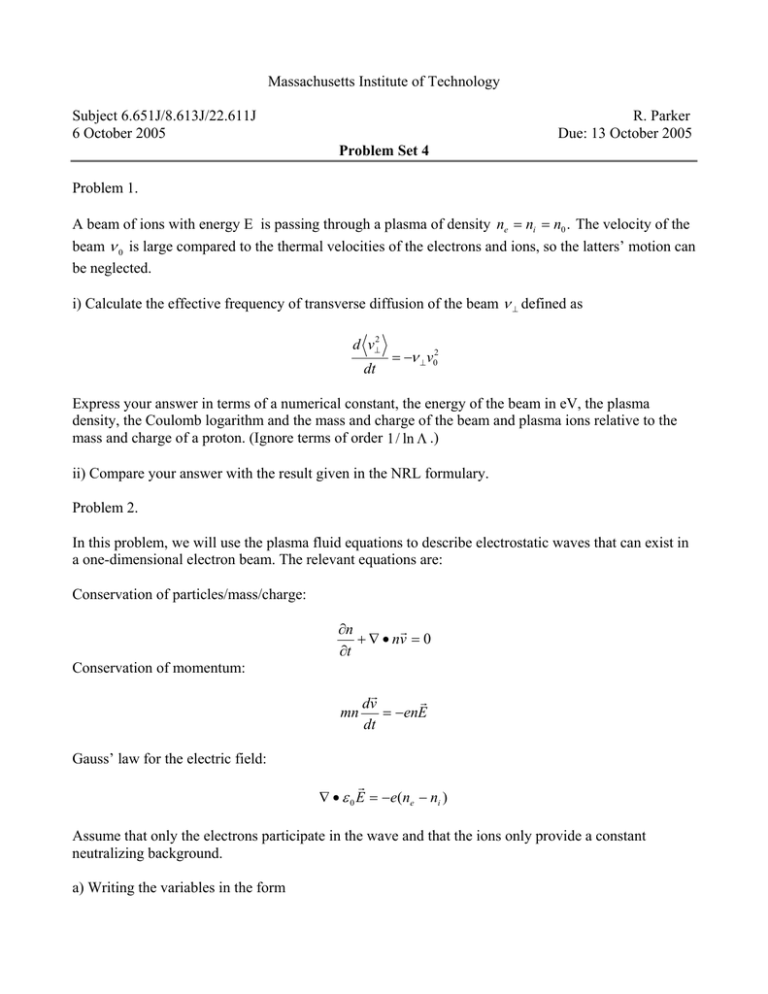
Massachusetts Institute of Technology Subject 6.651J/8.613J/22.611J 6 October 2005 R. Parker Due: 13 October 2005 Problem Set 4 Problem 1. A beam of ions with energy E is passing through a plasma of density ne = ni = n0 . The velocity of the beam ν 0 is large compared to the thermal velocities of the electrons and ions, so the latters’ motion can be neglected. i) Calculate the effective frequency of transverse diffusion of the beam ν ⊥ defined as d v⊥2 dt = −ν ⊥ v02 Express your answer in terms of a numerical constant, the energy of the beam in eV, the plasma density, the Coulomb logarithm and the mass and charge of the beam and plasma ions relative to the mass and charge of a proton. (Ignore terms of order 1 / ln Λ .) ii) Compare your answer with the result given in the NRL formulary. Problem 2. In this problem, we will use the plasma fluid equations to describe electrostatic waves that can exist in a one-dimensional electron beam. The relevant equations are: Conservation of particles/mass/charge: r ∂n + ∇ • nv = 0 ∂t Conservation of momentum: r r dv mn = −enE dt Gauss’ law for the electric field: r ∇ • ε 0 E = −e(ne − ni ) Assume that only the electrons participate in the wave and that the ions only provide a constant neutralizing background. a) Writing the variables in the form ne = ne 0 + n1 ( x, t ) ni = nio = ne 0 r ve = Ve 0 xˆ + v1 ( x, t ) xˆ r E = xˆE1 ( x, t ), where subscripts containing a 0 denote constant terms, develop a set of linear equations relating n1 , v1 and E1 . Note that since ne 0 = nio , there is no equilibrium electric field. b) Assuming a wave solution with all variables proportional to exp(iωt − ikx) , determine and sketch k (ω ). Explain why the two waves that you found are referred to as the slow and fast wave. ∂E1 + J b , the sum of displacement plus beam current. ∂t Note that this term is the source of the magnetic field in Ampère’s law. Why can the magnetic field be ignored in analyzing the beam wave motion? c) For each of the two waves, compute J x = ε 0
